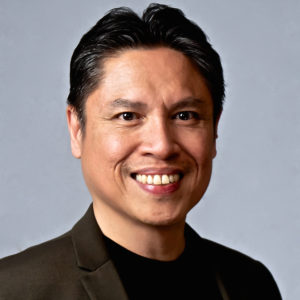
Readings:
First Reading: Acts 2:14a, 36-41
Responsorial Psalm 23: 1-3a, 3b4, 5, 6
Second Reading: 1 Peter 2:20b-25
Gospel: John 10:1-10
Do I hear the Shepherd’s Voice?
March 1996, Abbey of Our Lady of Atlas, Tibhirine, Algeria. Eight French monks are gathered around a U-shaped table with some bread. One of them plays the tape player; we hear Tchaikovsky’s grand theme from the ballet Swan Lake incongruously filling the austere dining room. He then takes two bottles of red wine and brings them to the table to share among them. As the monks quietly savor the wine, we see their aging faces in close-up: careworn and deeply furrowed, each face becomes a canvas of conflicting emotions; tears roll down cheeks, seemingly, to drown out whatever discernible smile that remains.
The profoundly moving scene is from the acclaimed French film Of Gods and Men (Dir. Xavier Beauvois, 2010), the true-to-life story of Trappist missionary monks who were kidnapped and murdered by Algerian fundamentalists in the crossfire between them and government forces.
In the film, the “last supper” scene marks the culmination of an intense period of discernment for the monks, a protracted struggle to hear the Shepherd’s voice. In earlier scenes, they gather together to pray and to weigh their options carefully before coming to a communal decision whether to leave the Abbey in Tibhirine or to stay. Leaving means saving their own lives while abandoning the Muslim community they’ve been serving for years; staying means continued solidarity with the community but facing the very real risk of being killed in the escalating violence. Deciding to abide in their mission to serve the people they have come to love, the monks, ultimately, lay down their lives for their Muslim sisters and brothers.
According to the Gospel for this fourth Sunday of Easter, the flock is able to perceive the promptings of their own shepherd and follow his lead: “When he has driven out all his own, he walks ahead of them, and the sheep follow him, because they recognize his voice.” (John 10:4) To hear the Shepherd’s voice clearly and audibly, how we all wish this were the case in our lives. But we know that earnest prayer and discernment is the way for us to have a sense of “God’s wisdom,” and how we are to proceed.
Although not many of us will come to a point where our enlightened decisions could lead to martyrdom like the Trappist monks of Tibhirine who are now beatified and en route to canonization, we are nonetheless called to serious discernment about many of our life choices as well. We hear and know the Shepherd’s voice as a peaceful conviction in the hidden regions of the heart. Then we choose to do the right thing.
In the eye of the “perfect storm” of a worldwide pandemic, we are moved and humbled by the masked faces of medical doctors, nurses, and healthcare workers in the frontlines, for whom following the Shepherd’s voice may well mean abiding in their mission to save lives, with a very real risk of losing their own. We often cannot see the conflicting emotions in their faces, but we are aware of the enormous sacrifices they make each day for the sake of their call.
Whether to frontline in hospitals to attend to a huge influx of patients, or to diligently observe the protocols of social distancing and sheltering-in-place in order to give the most vulnerable members of society a fighting chance, the sheep who truly recognize the voice of the Shepherd will choose to do the right thing.
“Do I hear the Shepherd’s voice?”
Facing the unprecedented challenges of our current reality, may we ask ourselves this question each day.
Br. Antonio D. Sison, CPPS
Associate Professor of Systematic Theology